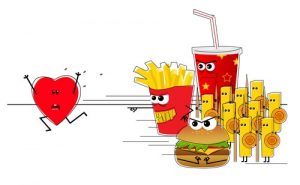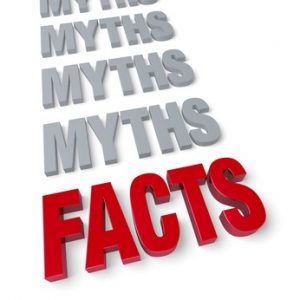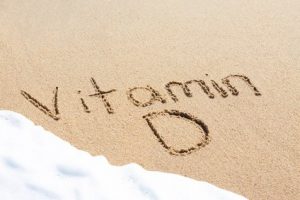Nutrition Breakthroughs Over The Last Two Years
Author: Dr. Stephen Chaney
 In the six years that I have been publishing “Health Tips From The Professor,” I have tried to go behind the headlines to provide you with accurate, unbiased health information that you can trust and apply to your everyday life. The 300th issue of any publication is a major cause for celebration and reflection, especially when its publication coincides with the first day of a brand-new year – and “Health Tips From The Professor” is no different.
In the six years that I have been publishing “Health Tips From The Professor,” I have tried to go behind the headlines to provide you with accurate, unbiased health information that you can trust and apply to your everyday life. The 300th issue of any publication is a major cause for celebration and reflection, especially when its publication coincides with the first day of a brand-new year – and “Health Tips From The Professor” is no different.
I am dedicating this issue to reviewing some of the major stories I have covered in the past 100 issues. There are lots of topics I could have covered, but I have chosen to focus on three types of articles:
- Articles that have debunked long-standing myths about nutrition and health.
- Articles that have corrected some of the misinformation that seems to show up on the internet on an almost daily basis.
- Articles about the issues that most directly affect your health.
What Diets Are Best For Weight Loss?
 Since this review is being written in January, let’s start with some of the articles about diets and weight loss. I have covered the effectiveness of the Paleo, Keto, Mediterranean, DASH, vegetarian, and Vegan diets for both short and long-term weight loss in my book “Slaying The Food Myths,” so I won’t repeat that information here. Instead, I will cover the popular Whole 30 Diet. I will also address the value of DNA tests in predicting which diet is best for you when it comes to weight loss.
Since this review is being written in January, let’s start with some of the articles about diets and weight loss. I have covered the effectiveness of the Paleo, Keto, Mediterranean, DASH, vegetarian, and Vegan diets for both short and long-term weight loss in my book “Slaying The Food Myths,” so I won’t repeat that information here. Instead, I will cover the popular Whole 30 Diet. I will also address the value of DNA tests in predicting which diet is best for you when it comes to weight loss.
I reviewed the Whole 30 Diet this past January. There is a lot to like about this diet, but some things to dislike as well. Here is a brief summary: Because it is a very rigid diet, it is excellent for short-term weight loss. What is less clear is whether it is good for weight maintenance or is even healthy over the long term. For more details, check out my article The Whole 30 Diet.
As for DNA testing, my recent article, Can Genetics Predict Which Diet is Best for You, in Health Tips From The Professor reviewed a study that looked at the value of DNA tests at predicting whether a low carb or low fat diet would be better at helping you lose weight. The article made some interesting observations about the relative value of low-carb and low-fat diets for weight loss. However, the most important conclusion of the study was that DNA testing was of no value at predicting whether a low-carb or low-fat diet would be the best weight loss strategy for you.
Can Diet Influence Long-Term Health Outcomes?
 This topic was a major focus of “Slaying The Food Myths.”
This topic was a major focus of “Slaying The Food Myths.”
Let me start with a quiz:
- Which diet decreases heart disease risk by 50% (Mediterranean Diet for Heart Health)?
- Which diet decreases both heart disease and diabetes risk by 50% (Diet, Type 2 Diabetes and Heart Disease)?
- Which diet decreases the risk of premature death by 31% (Premature Death Risk)?
Hint: The answer is slightly different in each case, but these are all whole-food, primarily plant-based diets. If you have forgotten the details, you may wish to check these articles out.
Here are some articles that didn’t make it into the book:
- Can diet reduce ADHD symptoms (Diet for Children with ADHD)?
- Can diet reduce Alzheimer’s risk (Can Diet Reduce Alzheimer’s Risk)?
- Can diet reduce prostate cancer risk (Best Diet to Prevent Cancer)?
- Can diet reduce colon cancer risk (Colon Cancer Prevention)?
The answer to each of these questions appears to be yes. If any of these are a concern for you, you’ll want to read the corresponding article.
Food Controversies And Your Health
 I discussed a lot of food controversies in “Slaying The Food Myths,” but here are a few that didn’t make it into the book.
I discussed a lot of food controversies in “Slaying The Food Myths,” but here are a few that didn’t make it into the book.
- “Are High Fat Dairy Foods Good For You?”
- “Are Eggs Good For Your Heart?”
- Is meat bad for your heart? There are two recent studies that came to opposite conclusions on this important topic. To evaluate the evidence, you need to look at both studies.
- “The Truth About Low-Carb Diets.” What do the latest studies show?
Junk Foods And Your Health
 I discussed sugar myths and pointed out that artificially sweetened foods were no better for you in “Slaying The Food Myths.” Here are some other topics that may be of interest.
I discussed sugar myths and pointed out that artificially sweetened foods were no better for you in “Slaying The Food Myths.” Here are some other topics that may be of interest.
- “Does Sucralose Make You Hungry?”
- “When Is Fructose Bad For You (and when is it good for you)?”
- “Do Processed Foods Increase Your Risk of Cancer?”
- “Are Fast Foods Killing Our Kids?”
Myths That Supplements Are Worthless
 In my book “Slaying The Supplement Myths” I showed that many of the claims that supplements were either worthless or dangerous were simply myths kept alive by the pharmaceutical/medical industry and “Dr. Strangelove’s” nutrition blogs. For example, in my book I listed clinical studies that have disproved claims that:
In my book “Slaying The Supplement Myths” I showed that many of the claims that supplements were either worthless or dangerous were simply myths kept alive by the pharmaceutical/medical industry and “Dr. Strangelove’s” nutrition blogs. For example, in my book I listed clinical studies that have disproved claims that:
- Soy causes breast cancer
- Methylfolate is required for everyone with MTHFR deficiency
- Folic acid causes colon cancer.
- Vitamin E and selenium cause prostate cancer.
- B6 and B12 cause lung cancer in men.
- Calcium supplements cause heart disease.
Just to name a few. However, new studies suggesting that supplements may be ineffective keep emerging, and each study is ballyhooed by the pharmaceutical/medical industry and the media. Let me update you with my reviews of studies that have been published since my book was written.
However, before I do that, let me put the controversies into perspective by looking at the strengths and weaknesses of the clinical studies behind the headline. I have written two articles on that topic in the past two years.
- In “Are Clinical Studies Misleading?” I discuss the reasons why the same kind of clinical studies that work well for determining the efficacy of drugs are ill suited for determining the efficacy of supplements.
- In “None Of Us Are Perfect” I point out that clinical studies are based on averages, and none of us are average. What worked for most participants in the study, might not work for you. Conversely, even if a supplement did not work for the average participant in a study, it might work for you.
With that in mind, lets look at some recent studies that have made the headlines.
Omega-3s And Heart Disease Risk
 I covered this topic in detail in my book. However, four recent studies have been published since the book was written. One of the studies declared that omega-3s were worthless at reducing heart disease risk. The other three studies were much more positive, although you wouldn’t know that from some of the headlines in the media.
I covered this topic in detail in my book. However, four recent studies have been published since the book was written. One of the studies declared that omega-3s were worthless at reducing heart disease risk. The other three studies were much more positive, although you wouldn’t know that from some of the headlines in the media.
- You will find my analysis of the negative study in “Do Omega-3s Reduce Heart Disease Risk?”
- You will find my analysis of the three positive studies in:
The bottom line is that evidence for a beneficial effect of omega-3 supplements on reducing heart disease risk is becoming much stronger, although you probably won’t hear that from your doctor or the media. If you want to know how much and what kind of omega-3s are optimal, you will want to read my articles.
Vitamin D: Myths Versus Truth
 Two recent studies have been published questioning the importance of vitamin D supplementation. The first study claimed that vitamin D supplementation was ineffective for maintaining healthy bones in the elderly. If you believed the headlines, the second study showed that vitamin D was ineffective at reducing both heart disease and cancer. If you read the paper, you discovered that the authors did show benefits of vitamin D at preventing cancer deaths in the general population and reducing cancer risk in high risk groups. However, both studies suffered from some serious flaws that limited the ability of the studies to clearly demonstrate the benefits of vitamin D supplementation.
Two recent studies have been published questioning the importance of vitamin D supplementation. The first study claimed that vitamin D supplementation was ineffective for maintaining healthy bones in the elderly. If you believed the headlines, the second study showed that vitamin D was ineffective at reducing both heart disease and cancer. If you read the paper, you discovered that the authors did show benefits of vitamin D at preventing cancer deaths in the general population and reducing cancer risk in high risk groups. However, both studies suffered from some serious flaws that limited the ability of the studies to clearly demonstrate the benefits of vitamin D supplementation.
- You will find my analysis of the vitamin D and bone health study in “Are Vitamin D Supplements Worthless?”
- You will find my analysis of the vitamin D, heart health, and cancer study in “The Truth About Vitamin D.”
- In “Does Vitamin D Reduce Cancer Risk?” you will find my review of another major clinical study that concluded vitamin D does reduce cancer risk. That study also shows why it has been so difficult for other studies to demonstrate a clear benefit of vitamin D at reducing cancer risk.
The “Dark Side” Of The Food Supplement Industry
 I covered the dark side of the supplement industry in great detail in my book “Slaying The Supplement Myths.” Here are a few more examples that have crossed my desk since the book was written:
I covered the dark side of the supplement industry in great detail in my book “Slaying The Supplement Myths.” Here are a few more examples that have crossed my desk since the book was written:
- In “Is The Jellyfish Memory Supplement A Hoax?” I give another example of what the FTC describes as junk science and misleading advertising.
- In “Are Curcumin (Turmeric) Benefits Bogus?” I give another example of why it is so important to base supplement claims on clinical studies rather than cell culture and animal studies.
- In “Exposing The Dark Side Of The Supplement Industry” I give examples of adulteration (substitution of cheaper ingredients for the ingredient claimed on the label), supplements that are dangerous, and misleading product claims.
What Does The Future Hold?
I have just touched on a few of my most popular articles in the list I gave you above. You may want to scroll through that list to find articles of interest to you that you might have missed. If you don’t see what you are looking for, just go to https://www.chaneyhealth.com/healthtips and type the appropriate term in the search box.
In the coming year, you can look for more articles debunking myths, exposing lies and providing balance to the debate about the health topics that affect you directly. As always, I pledge to provide you with scientifically accurate, balanced information that you can trust. I will continue to do my best to present this information in a clear and concise manner so that you can understand it and apply it to your life.
If you have other topics that you would like me to cover, please click on the link below to enter your suggestions in the comment box.
Final Comment: You may wish to share the valuable resources in this article with others. If you do, then copy the link at the top and bottom of this page into your email. If you just forward this email and the recipient unsubscribes, it will unsubscribe you as well.
These statements have not been evaluated by the Food and Drug Administration. This information is not intended to diagnose, treat, cure or prevent any disease.
